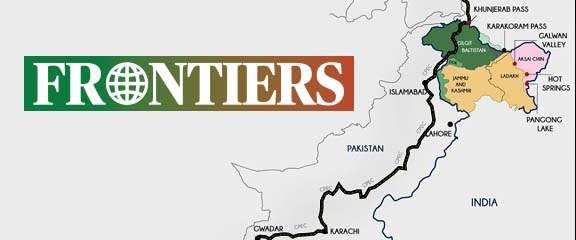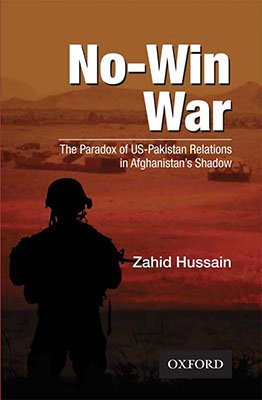
Author: Zahid Hussain
Publisher: Oxford University Press
Pages: 372
Price: Rs. 850
A columnist, an author and a media analyst, Zahid Hussain is known internationally for his extensive coverage of Pakistan-US relations against the backdrop of the war in Afghanistan. He was a correspondent for The Times of London (1986-2012) and the Wall Street Journal (2001-2012). His latest book, No-Win WAR: The Paradox of US-Pakistan Relations in Afghanistan’s Shadow, could not have been more perfectly timed, as the US prepares to pull out of Afghanistan by September 2021. Published by Oxford University Press, the book was launched at both the Karachi and Lahore Literature Festivals in February 2021. Hussain’s earlier books, Frontline Pakistan followed by The Scorpion’s Tail, were insightful accounts of Pakistan’s challenges in the wake of 9/11.
In some ways, No-Win War is a continuation of that discourse, with a much needed focus on the triangular Pakistan-Afghanistan-US relations. Despite the multiple challenges, Pakistan-US relations have sustained over the years, though not without many ups and downs. Pakistan has been the most allied ally of the US during the Cold War; the most sanctioned ally post Pakistan’s gatecrash into the nuclear club; and a non-NATO ally post 9/11. The last status has been contingent on the situation in Afghanistan. The relationship is also a story of broken promises, marked by acute trust deficit between the two countries.
At one point, Pakistan appeared to have even lost its identity, when US foreign policy circles bracketed Pakistan with Afghanistan as a single theatre of operations. In fact, the Obama administration, in 2018, hyphenated the country’s geopolitics with Afghanistan’s and started using the term Afpak or Af-Pak, much to Pakistan’s displeasure.
Eighteen chapters and 372 pages-long, No-Win War is extremely well-researched and spans a very critical time period, spread between September 13, 2001 and February 29, 2020. The first chapter is appropriately titled — History Starts Today (13 September 2001), as is the last chapter — End Game (29 February 2020). From extreme hostility, bombings and deaths to conferences, change of governments and the glitter of Hotel Sheraton in Doha as the talks with the Taliban get underway, the book is a sequential development of events that took place between these two landmark dates. The narrative behind all the interestingly titled chapters offer behind-the-scenes glimpses into events that unfolded post 9/11. The book beautifully captures how, within two days, the tone and tenor of the US vis-à-vis Pakistan changed, and how the most sanctioned ally of the US became the most sought after. One of the most compelling sentences of the book is: “The US history may have started after 9/11, but for Pakistanis reverting to the American embrace was a return to history.” Unfortunately, the embrace has proven to be torturous for Pakistan. For the last 20 years, the relationship between the two countries has been contingent upon Afghanistan. While on the one hand, Pakistan became a country that was solicited for peace and progress in Afghanistan, on the other, it was blamed for everything that went wrong. Despite its cooperation, the trust deficit between the two countries exacerbated and the constant public humiliation of Pakistan by the US on account of Afghanistan became the norm.
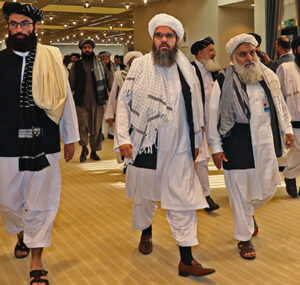
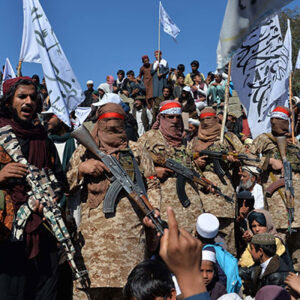
The Memogate scandal, revolving around a memo allegedly sent by the PPP government to the Obama administration seeking their help in averting a military takeover of Pakistan; the wrangling over who was to be appointed Pakistan’s envoy to the US and for how long; the case of the CIA contractor Raymond Davis, who was charged with the murder of two Pakistani citizens; the presence of 300 “safe houses” called Omegas in Islamabad that were being used by Al-Qaeda and Taliban operatives; the rising CIA presence in Pakistan through the private military company, Blackwater; the ISI and CIA chiefs falling out with each other over the Salala incident, in which US-led NATO forces attacked two Pakistan military checkposts killing 28 Pakistani soldiers and the US government’s refusal to apologise, the story of 400 unauthorised visas issued to Americans; and the taking out of Osama bin Laden from Abbottabad by US Navy seals — all these incidents are skilfully woven into a jaw-dropping portrayal of what happened between Pakistan, Afghanistan and the US.
The book is a treat to read. Written in an easy-to-understand journalistic style, it is very detailed and carries interviews of high profile personalities, such as former president Pervez Musharraf (Hussain interviewed him several times both when in, and out of power) and former Afghan President, Hamid Karzai. He also had several sessions with the former Pakistan Army Chief, General Ashfaq Parvez Kayani — Hussain refers to him as the “thinking soldier” — both during his tenure as Chief Of Army Staff and post his retirement. Chronicling detailed accounts of significant events that have transpired over the years, the author allows the reader a rare insight into how Pak-US-Afghan ties have shaped up in ways that go far beyond what meets the eye. The US’ intellectual deficit on Afghanistan and the strategic confusion that prevailed among the Bush, Obama, and Trump administrations, remained the biggest impediment to any progress on Afghanistan. And it continues to haunt the new incumbent Biden’s decision-making about a country the US invaded, bombed, and destroyed, then tried to rebuild, and is now desperate to see it survive. The lethargy exhibited by the US, Pakistan, and Afghanistan governments in responding to the challenges that stared them in the face, the internal polarisation, and the divisions among them also aggravated the situation.
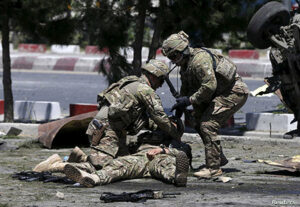
The tale of the evolution of the Taliban from a tribal group of savages living in the mountains to a politically and digitally-savvy entity, its gradual move to a position of power through violence and violence alone and its subsequent use of that power in negotiations to extract its pound of flesh, makes for a fascinating read. In retrospect, one feels that the US, due to its ego and a desire to exact revenge post 9/11, should not have squandered away the opportunity to bring the Taliban on board, especially in the initial stages when they were willing to step back. The manner in which the conflict transformed, leading to the toxic Karachi-Quetta-Kabul nexus, only made it more deep-rooted and potent in the region. The conflict has stretched on for 20 plus years now, making it one of the most expensive and prolonged wars. It is frequently referred to as the “forever war.”
The author rightly points out that although the Doha talks offer some hope, Afghanistan will always remain at the crossroads of peace and war. The list of missed opportunities for peace in Afghanistan is long and painful. The peace talk initiatives of the past are littered with deadlocks, leaks, and assassinations. It is high time a way forward was found. Battle fatigue has turned into battle exhaustion. Hussain’s book is a fantastic recall and serves as a gentle reminder to learn from history. I would highly recommend in to all those trying to make sense of the Afghan conundrum.

The author is an Associate Professor of Social Sciences and Liberal Arts at the Institute of Business Administration, Karachi.


